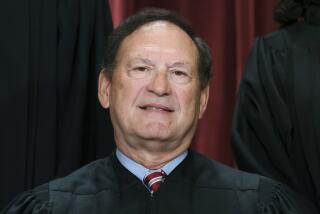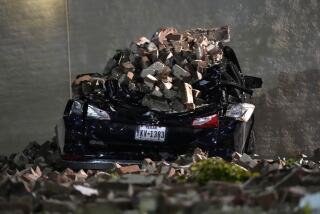Court Questions Law on Religious Liberty
Hearing oral arguments in a major religious liberty case, several Supreme Court justices suggested Wednesday that Congress may have overstepped its bounds when it sought to reverse the court’s recent ruling on the “free exercise of religion.”
Justice Anthony M. Kennedy commented that the court had properly concluded religious claimants should get equal treatment under the law but not special exemptions.
“This [1993 law] says that every statute, every regulation must grant religious adherents special preferences. That seems to me inconsistent with our traditions,” said Kennedy, a key swing vote on the court.
Justice Sandra Day O’Connor wondered whether Congress could overturn the court’s abortion decisions by passing a new law. Usually, a ruling interpreting the Constitution cannot be reversed, except by amending the document.
O’Connor also raised doubts about the broad sweep of the 1993 law. Suppose a state decided to drop tax deductions for charitable contributions, an action that would surely hurt churches. If so, the state measure might then violate federal law, she suggested.
This issue arose in 1990 when the Supreme Court ruled that general laws, such as tax law, should prevail over special claims based on religion. But Congress, in the Religious Freedom Restoration Act of 1993, disagreed and said that religious claims should prevail in most instances.
“This case is not about religious liberty. It is about federal power,” began the attorney representing the Texas town that is challenging the law passed by Congress. “This is the worst of legislative overreaching,” she said.
In the case before the court, the city of Boerne, Texas, has used its historical preservation law to block a Catholic parish there from knocking down or adding on to its 74-year-old Spanish-style church.
Seeking to be free of the city’s building restriction, the church sued in federal court, citing the 1993 religious freedom law.
Marci Hamilton, a former Supreme Court law clerk who teaches law at Yeshiva University, argued that Congress does not have the power under the Constitution to impose such broad laws on cities and states.
“This is not a dramatic power grab by Congress,” responded University of Texas law professor Douglas Laycock, who was defending the new law. It merely says that the government cannot put a “substantial burden” on the practice of religion, he said.
That prompted Justice Antonin Scalia to say, “Zoning imposes a substantial burden on everybody.”
Now, the justices will vote on the case privately and begin working on an opinion. A ruling in the case (Boerne vs. Flores, 95-2074) is not expected until late June.
More to Read
Start your day right
Sign up for Essential California for news, features and recommendations from the L.A. Times and beyond in your inbox six days a week.
You may occasionally receive promotional content from the Los Angeles Times.







